In just one year, the COVID-19 crisis has completely upended the way business is done in all industries and countries around the world. According to a worldwide McKinsey survey conducted in late 2020, CEOs from all over the world say that capability building is more valuable during the pandemic than ever (80% of respondents).
The Chinese division of SIBUR International (SI) was one of the first to take the hit. However, a joint search for solutions and the SI team’s inherent readiness for challenges allowed them to not only survive a deep transformation but also to use the experience gained as a solid foundation for future success.
Mariya Voronkevych, Executive Director at SI in China, notes that the change in the team’s thinking, the speed that they grasped the new normal, and the engagement and flexible approach of employees led to bold decisions and opened up new channels of growth for the entire division.
The challenge of lockdown
“People were panicking because they didn’t know how long it would last for. As the country plunged into lockdown, we witnessed a sharp drop in prices and people refusing to buy products. Because of the measures imposed by the government, all cargo that arrived at that time was stuck at the ports,” recalls Daisy Fu, Head of Sales of Basic Polymers at SIBUR International Trading (Shanghai) Co., Ltd.
“China was the first to be hit by the coronavirus, and our office was the first to face the challenges of lockdown,” explains Stepan Skirda, Supply Chain Manager at the Shanghai Customer Service Centre. “For my division, the main difficulties came in delivering on contracts signed before the pandemic: shipments took 1.5 to 2 months and arrived when everything was shut, from the clients’ production lines to the ports. We had to dive into intense negotiations with partners, agents and shipping companies to extend the periods of free storage or to redirect shipments to other destinations.” According to Stepan, situations involving barrages of tough negotiations had happened before, but never for almost all shipments.
“Some banks closed during the lockdown, and our clients couldn’t transfer funds. SIBUR International Trading (Shanghai) requires full payment in advance, so shipments were not released to customers, which in some cases led to delays and demurrage charges,” says Bronislav Fein, Head of Finance and Economics at SIBUR International Trading (Shanghai).
The Shanghai Containter Terminal: cargo arrived at Chinese ports that had already shut.
“During that period, there were sizeable additional costs for cargo storage, and on a day-to-day basis we had to address this issue and find optimal solutions to deduct some of these costs or reduce them as far as possible,” adds Margarita Pilyugina, Logistics Manager. “It was a difficult time: drawn-out negotiations with shipping companies, port agents and clients. Our team did everything it could to minimise risks and cash losses. As a result, we managed to extend the periods we could store shipments and use containers. The agreements we reached allowed us to prevent those issues from cropping up again.”
Fortunately, SIBUR International has built a strong relationships with its clients during its time in China. “We played an active role in our partners’ negotiations with shipping companies, and thanks to the efforts of the logistics team, we secured an increase in the number of free days at ports,” explains Daisy Fu.
SIBUR International also adopted new approaches in its operations; in particular, a string of new rail shipments appeared, which enabled an increase in the volume of deliveries and cut delivery time.
“Business doesn’t tolerate failure to meet agreed deadlines: customers need to collect their shipments, and the finance team needs to record the receipt of funds, issue the necessary documents for the release of goods and record all these operations in our accounts. Our team had to set up all these processes remotely,” says Bronislav Fein. “To do this, we used online solutions (WeChat, Zoom or Skype). We also identified the tasks that required an office presence and designated employees who were required to physically turn up to work. At the same time, it was necessary to strike a sensible balance between the needs of the business and the safety of staff, which is a priority for SIBUR.”
SIBUR International started shipping by rail during the pandemic. Photo: Li An/Xinhua/Zuma/TASS
Stepan Skirda agrees: “sometimes we needed to release original documents and ensure that they were sent, something that was only possible from the office, so having someone on shift helped us out. The new mobile office, which allowed us to access documents located on the company’s remote server, was also helpful.”
The management team of SIBUR International played an active role in supporting employees along the transition to working from home. “In addition to IT support, seminars were held explaining the principles of remote work, mental health and staff morale during the pandemic,” recalls Alexandra Yastimova, Junior Trader at the Customer Service Centre. “All of this helped me to concentrate on my workflow.”
While China and SIBUR International’s offices in the country quickly got a handle on the situation, a wave of lockdowns spread across Russia and Europe. This turned into the next stage in overcoming the crisis. “Deliveries to Europe were rerouted to Asia. The entire operational chain was involved: sales, logistics, finance, etc. Our customers were sympathetic, and we tried to do as much as we could to ensure deliveries arrived on time,” adds Alexandra.
Quickly moving business processes online helped to ensure uninterrupted supplies.
“Our employees were put through a kind of company loyalty, engagement and flexibility test, because for many, the workload greatly increased, sometimes with an increase in the level of responsibility. I am proud to say that our managers demonstrated extraordinary resilience in pulling us out of this tricky situation,” says Mariya Voronkevych. “This could be seen in many different processes: colleagues began to communicate more with other SIBUR International offices, and with SIBUR more broadly. These interactions helped the employees at the Chinese office to better understand that their voices are heard and that the Company is relying on them and their frontline position to find and implement solutions. As a result, problems were solved faster. Also, over the past year, colleagues began to take a new approach to planning their work day: this whole concept is no longer just empty words or a recommendation, but an important component of effective work, which is supported by the Company.” The pandemic has forced a rethink on a whole range of issues. Mariya says that everyone’s attitude to working from home has changed: thanks to a good attitude towards it, the transition was rapid. While working from home, some of the projects implemented in 2020 came into their own, for example E-docs, automated contract signing in the Corporate Information System, and the development of direct deliveries from Chinese suppliers. At the same time, it became clear just how important the Company’s investment in IT infrastructure was (mobile offices, Skype for Business and laptops for employees). The role of corporate communications also came to the fore: we set up mailing lists in Russian and English (we have started using English more) with tips and tricks, as well as any updates on the current situation and key recommendations,” Mariya Voronkevych summarises.
ZapSibNeftekhim: breaking through to the Asian market
The launch of ZapSibNeftekhim (ZapSib), which coincided with the outbreak of coronavirus in Russia and Europe, radically disrupted the petrochemicals market. Significant production volumes have flowed into the South-East Asian market, which falls in line with the project’s strategy.
“The ZapSib launch preparations were in full swing when I joined the SIBUR International team,” recalls Margarita Pilyugina. “We put in a lot of hard work with colleagues in Shanghai to be fully geared up for the first shipments of products to China and South Asia from Tobolsk.”
“We meticulously studied the Central Chinese market, expanded our presence in our alternative market – South-East Asia – and opened up domestic rail freight, a transport route that local manufacturers still dominate. Thanks to diligent preparation during the pre-marketing campaign and the hard work and efforts of our team, SIBUR products became well-established and recognised among customers in China, and sales grew by 250%,” explains Daisy Fu.
“Since the launch of ZapSib, our workload has increased significantly,” says Alexandra Yastimova. “In 2020, the team managed to send almost 1 million tonnes of products to the Chinese market. On top of this, last year marked the beginning of our cooperation with Sinopec. This was a huge milestone, and of course, a huge challenge. In 2021, we have even more ambitious plans in the pipeline to further grow the number of shipments.”
Sales of Russian polymers in China have more than doubled since the launch of ZapSibNeftekhim.
Merry Zheng, Technical Support Manager in the Basic Polymers department, echoes her colleague. “It was a time of rapid growth for SIBUR International’s reputation in the market, and my division did everything it could to provide appropriate technical support,” she says, noting also the diversification of the product range: new grades of high value-added HDPE pipe and new grades of polypropylene were successfully developed and began to sell well in the Chinese market. Merry is positive: “the market outlook is bright – every day is better than the last.”
“With the launch of ZapSib, we were able to increase shipments of products to one of our customers from just 100–200 tonnes per year to 1,000–1,500 tonnes per year," notes Daisy Fu. According to her, this happened in part thanks to colleagues from TS, who actively worked on tailoring the product to the client’s business. It is worth noting that our high-quality service offering and short order-to-delivery lead times have played a role: clients are ordering less from other suppliers and are investing more in SIBUR products. “Of course, with this increase in sales, we have needed to take on significantly more staff at all of our operational units in China,” says Daisy.
A shipment of products at ZapSibNeftekhim.
“During the sharp increase in volumes and the evolution of the COVID-19 situation, our operational activities faced numerous hurdles: there were errors, there were delays,” adds Daisy. “But we have established regular dialogue with other teams and organised a weekly online meeting to discuss issues. To put it briefly, having worked under strict restrictions, we reviewed our entire workflow and significantly improved it. Now we know how to manage uncertainty and what we need to deal with the current situation.”
“With the launch of ZapSibNeftekhim, we upped the volumes of products going to South-East Asia to 1 million tonnes, launched rail freight to new regions of China, held a number of online customer events, adopted new processes and established new lines of communication both internally and externally with contractors and clients. Despite the fact that we have been preparing to sell from the new plant for several years now, 2020 was quite the test for everyone – but it was one that we got through as a team,” acknowledges Mariya Voronkevych.
Tailoring our approach to clients and working as a team
SIBUR’s cooperation with clients and contractors is founded on the principles of collaboration and mutual respect, and a culture of dialogue and professionalism, which drive growth in the Company’s presence in foreign markets and boost recognition among new customers.
Daisy Fu has already fostered an eight-year-long relationship with one client, a major Chinese producer of BOPP film. “It all started with homologation,” she says. “At first, the customer had questions about our product, they weren’t completely satisfied with it. Then our team went out to the production site and adjusted the manufacturing formula to fit the needs of the customer. Since then, they have been filling the Company order book: at first they bought only 100 to 200 tonnes per year, now this figure has increased more than tenfold. I think the whole point is that we put a lot of effort into satisfying the client: we promptly answer all their questions and overcome any obstacles that arise. Having seen the makings of a reliable partner in SIBUR, our customers will be more than happy to sel ect us as a major supplier in the future.”
A new product line was developed for the Chinese company Sentury in 2020.
One of SIBUR’s long-standing clients in Asia is Sentury, a leader in the Chinese tyre industry. “Thanks to the team’s outstanding work, we have developed several new product lines for Sentury with an extensive product mix. In fact, Sentury was the first to certify our products in Asia,” says Rebecca Chen, Head of Sales for Synthetic Rubbers. “Colleagues from different departments try to pay attention to the customer’s needs and drive success: a team of sales managers who share a common cultural grounding with the client determines their individual needs, while a local technical team analyses emerging issues and works with colleagues from R&D at the Moscow headquarters to offer a product with agreed specifications. The SI finance team in Vienna provides a good finance mechanism allowing for attractive contract terms for both the client and SIBUR International.”
In December last year, the basic polymers technical service team launched production of a product in the HDPE SBM segment for one of the largest SBM companies in the Chinese market. Before that, both parties agreed to test SIBUR’s product at the production site. The client conducted the first round of testing independently, but the product did not hit the mark. “We then thoroughly looked into the problem with the technical support team at the head office, fixed the technical solution and presented to the customer our proposals for adjusting production based on the performance of their equipment,” says Merry Zhen. “It was important to achieve positive test results, because if we couldn’t deliver this time, then other customers from the same industry would have doubts about the potential of the solution offered by SIBUR. In addition, colleagues from the sales department tasked the Procurement Manager with presenting the benefits of our product.”

SIBUR’s SBM HDPE passed a round of tests at a Chinese facility.
According to Merry Zhen, in contrast to traditional, unimodal grades, SIBUR products boast many benefits: they use advanced manufacturing technologies, are more resistant to stagnation, provide a high barrier and are food safe, and have strong Environmental Stress Crack Resistance (ESCR). Thanks to the joint efforts of the technical support and sales team, the client was soon ready to run a second test, and the Chinese SIBUR International team was just as invested as the client, if not more, in a positive outcome. “The customer was betting on future cooperation with SIBUR, as the new ZapSib facilities would provide it with stable supply of feedstock and scope to diversify its products,” explains Merry.
The second test was set up with input from the SI team and it went smoothly. “The shape of the manufactured bottles turned out much better and the customer was satisfied with the result, so they then asked us to conduct another test, this time on a larger scale.” This order was extremely important in boosting the market penetration of the new bimodal grade of high-density polyethylene (HDPE). “We unlocked the door to success. This is a case of well-coordinated teamwork, which proved to the market that our product is of excellent quality. This is a great springboard for a market development programme in the HDPE SBM segment,” Merry Zhen excitedly concludes.
Alexandra Yastimova also highlights the importance and effectiveness of teamwork, without which the best results cannot be achieved. She cites SIBUR’s work with its main partner in the Chinese market, Sinopec, as an example of fruitful cooperation. “Since we signed our main agreement with Sinopec more than a year ago, we have held a number of meetings to discuss the problems related to building a new business process – and sometimes our views differed,” says Alexandra. “But thanks to the well-coordinated work of our individual departments (trading, finance, logistics and planning), we always come to an agreement that suits both us and our partner.” “For SIBUR, it is important to hear out our customers’ wishes and demands, and to explain our capabilities to them and deliver results,” says Alexandra Yastimova.
“As part of our partnership with Sinopec, we set up a separate line of communication to optimise the transportation of products,” says Margarita Pilyugina. “It allows us to handle huge volumes, make swift decisions and minimise risks. Our goal is to make sure that each and every customer is satisfied with our service.”
Today’s efforts lead to tomorrow’s success
The employees of SIBUR International’s China office do not just draw attention to the team effort involved in working with clients, but the fact that our solutions fully deliver on the needs of all parties involved.
Daisy Fu has been working at China office for 13 years, practically since the day its doors first opened in 2008. At that time, the Shanghai office consisted of only four employees, but with the launch of a new production facility in Tobolsk (SIBUR Tobolsk), the team began to grow rapidly. “We hired new sales managers, opened branches in different regions and grew the business in each local market,” recalls Daisy. “In my more than 10 years at SIBUR, I have witnessed the continuous development of the Company, and the forging of more and more cross-functional ties with Russia and other regions.” Merry Zhen also remembers a sharp surge in activity on the back of the launch of SIBUR Tobolsk: it just so happened to coincide with the start of her career at SI. “We needed to get the ball rolling on the process and prepare to sell new grades of polypropylene in China. Myself and a team of sales specialists travelled to all four target regions and visited the plant in Tomsk as well as SIBUR’s head office in Moscow,” says Merry. “I met all my colleagues from the Technical Support team while in Russia, and I was in awe at the Company’s culture and policies.”
“We have a really dynamic atmosphere here: new tasks are constantly appearing, sometimes at the interface with another department,” explains Bronislav Fein. “Sometimes, colleagues who you don’t know fr om other divisions and enterprises of the wider Company get in touch with you. It’s in these moments that you realise SIBUR is a huge, living organism with many moving parts that are all interconnected.” Bronislav Fein says that it is impossible to remain passive at SIBUR: a passive employee will either change themselves or leave the Company, unable to withstand the upbeat pace of work. Bronislav compares working in SIBUR with rafting: “There is this feeling that you are floating along on a calm, flat river, but out of nowhere jumps a furious descent on the rapids.”
The doors of SIBUR’s Moscow headquarters are always open to SIBUR International employees.
When Daisy Fu started working at SI, it took some time for her to adapt to the cultural differences. But SIBUR has an excellent work environment, and she quickly and successfully adjusted. “Following the launch of ZapSib, I have focused on promoting and selling new products. SIBUR sees China as a strategic market for its products. In 2020, we achieved a significant growth in sales. I’m the Chinese Team Leader: we sell new products, look for prospective customers, explore new markets and supply routes for them, and ensure everything runs smoothly. Looking forward, I hope that we will be able to further promote the SIBUR brand in China by focusing on meeting our customers’ needs.”
Merry Chen elaborates on her colleague’s comment: “With ZapSibNeftekhim working at full capacity and our diverse product mix, our team’s north star is to boost sales, make our products more competitive in terms of quality and service, and increase recognition among customers. I consider the establishment of the TS team in China a great milestone: they allowed us to expand and strengthen TS ties with Sinopec on polyethylene shipments, while updating the homologation certification for all new PP/PE grades.”
Checking new tyres at a factory in China.
Rebecca Chen explains that with the launch of ZapSib and the development of a JV with Reliance Industries Ltd. (RSEPL, 120 ktpa of butyl rubber) in India, the Shanghai office will take the lead on an aggressive development programme in the Asian market for basic polymers and synthetic rubbers (SR). “As the head of the SR team in Asia, I work with my colleagues to boost sales of butyl rubber produced through a joint venture with RSEPL. Another key focus area is serving Asian customers in the tyre and non-tyre segments with our extensive portfolio of synthetic rubbers produced at SIBUR’s facility in Voronezh, Russia. Last but not least, we concentrate on the further market penetration of SIBUR’s line of SBS grades, which were introduced to China in 2020.”
“Last year, many processes had to be reinvented and decision-making made more flexible, which, looking forward, will undoubtedly help us to better commercialise ZapSibNeftekhim’s products in Asia, boost the sales of RSEPL products, and get them homologated, while gearing up for the launch of new production facilities. The transformation and development of our practices will press ahead, strengthening relationships with clients and optimising internal processes,” concludes Mariya Voronkyevich.
Download PDF


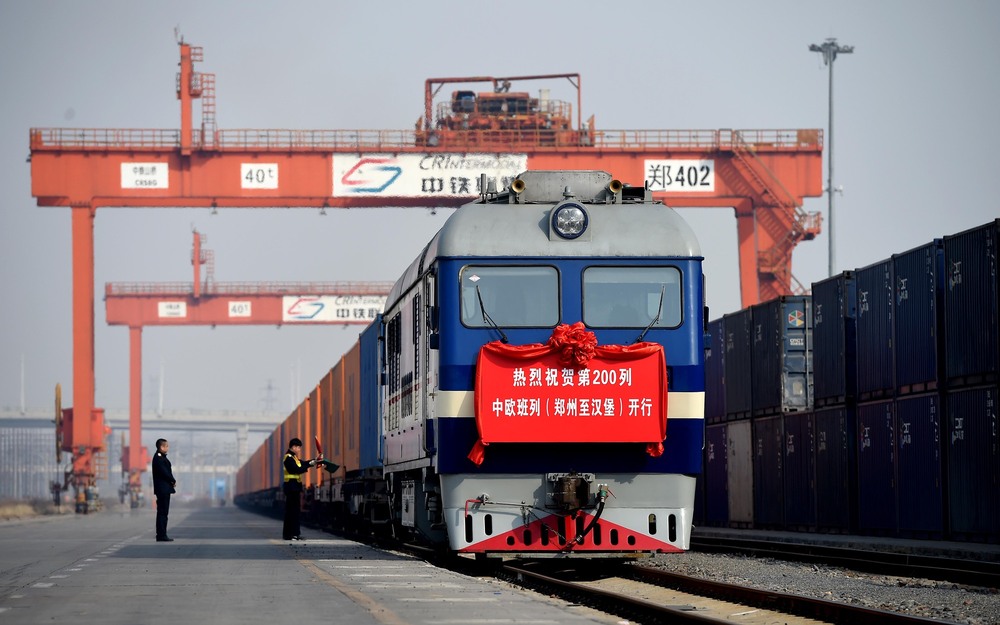


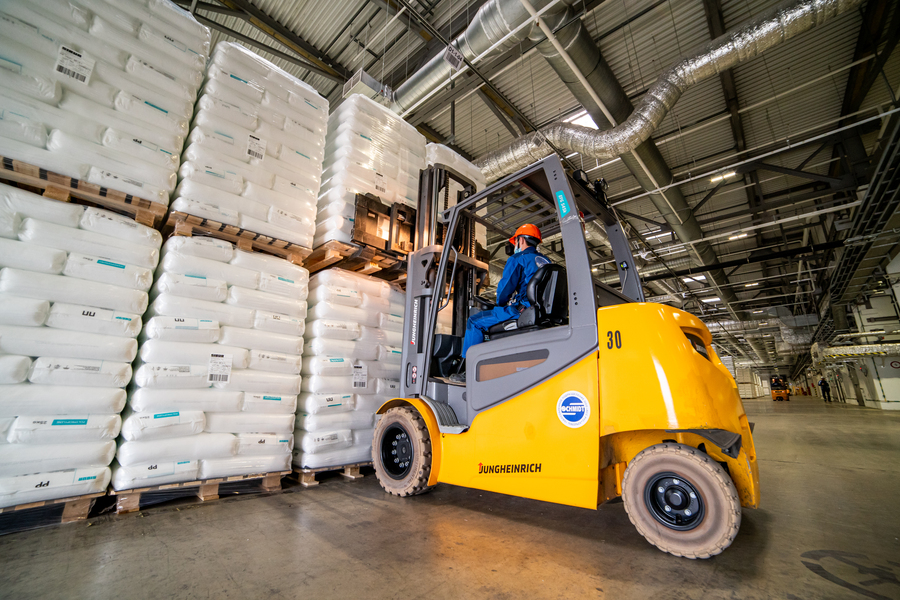


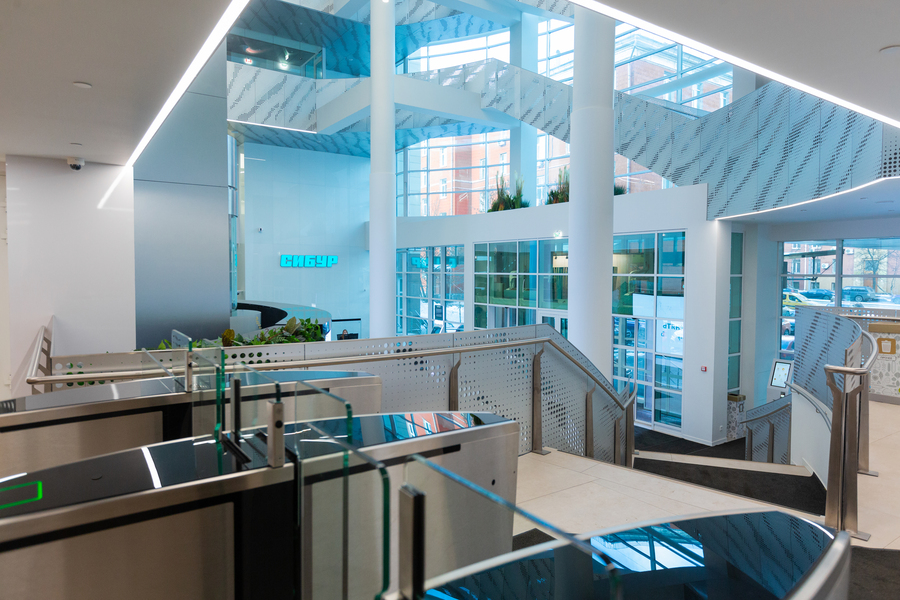
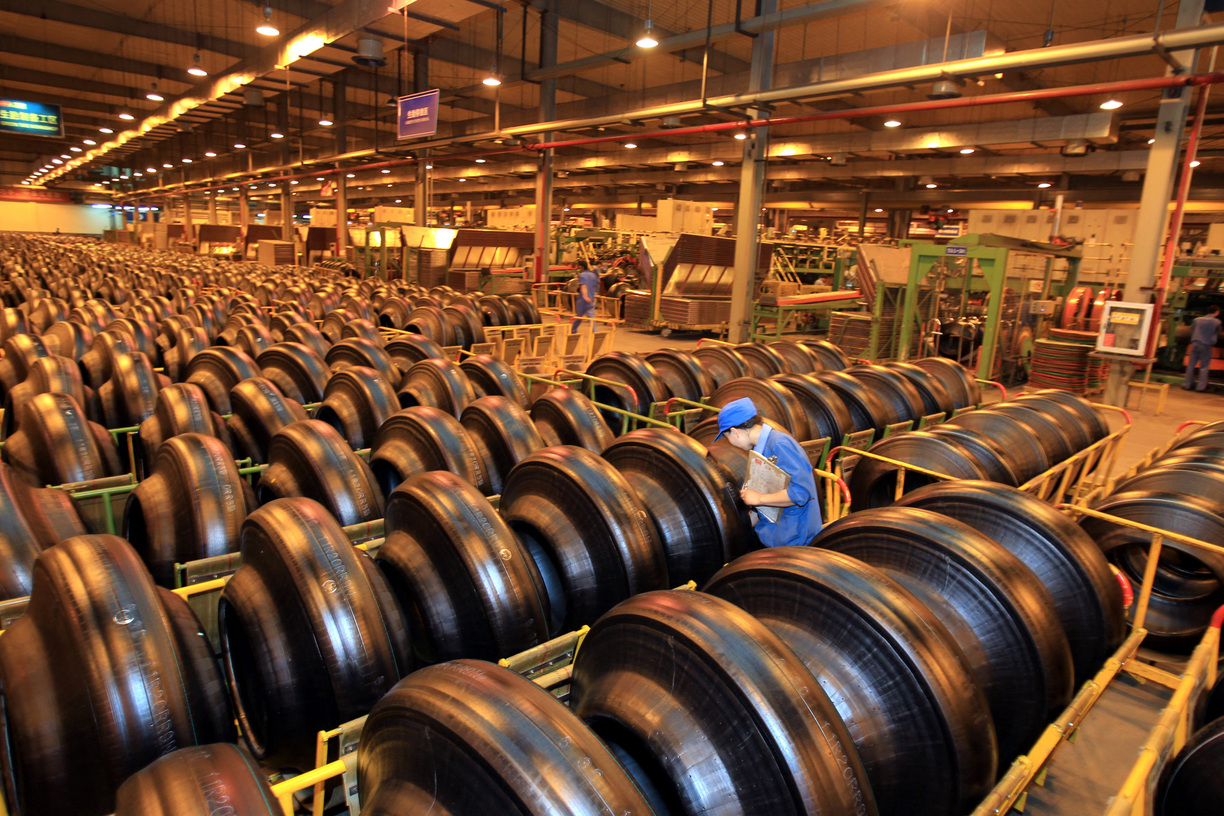

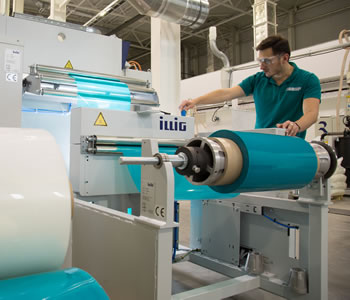



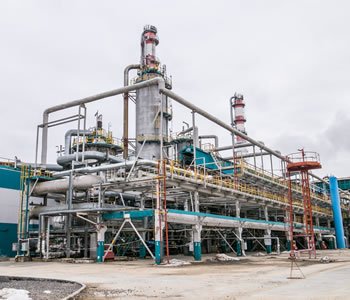
Daisy Fu
“As the country plunged into lockdown, we witnessed a sharp drop in prices and people refusing to buy products. Because of the measures imposed by the government, all cargo that arrived at that time was stuck at the ports.”